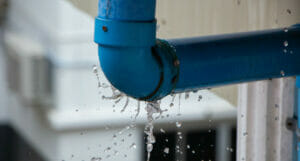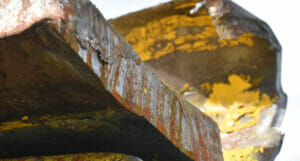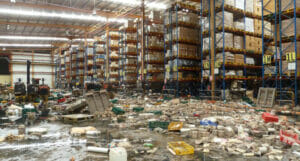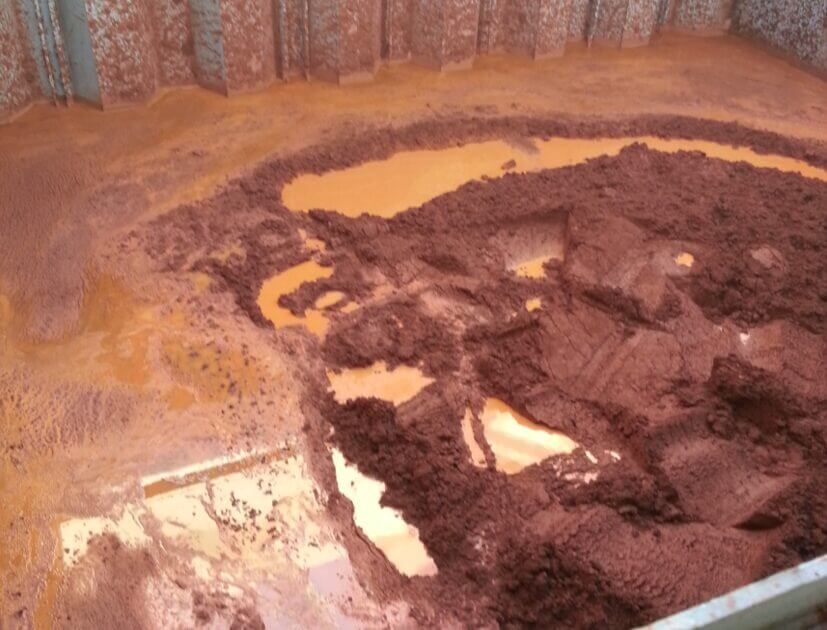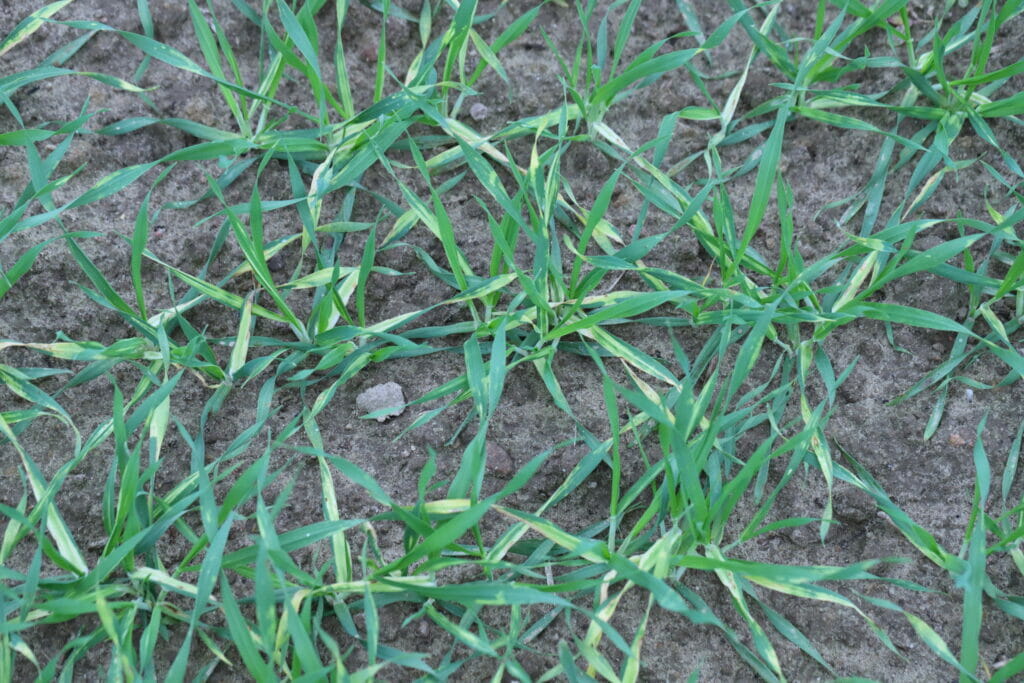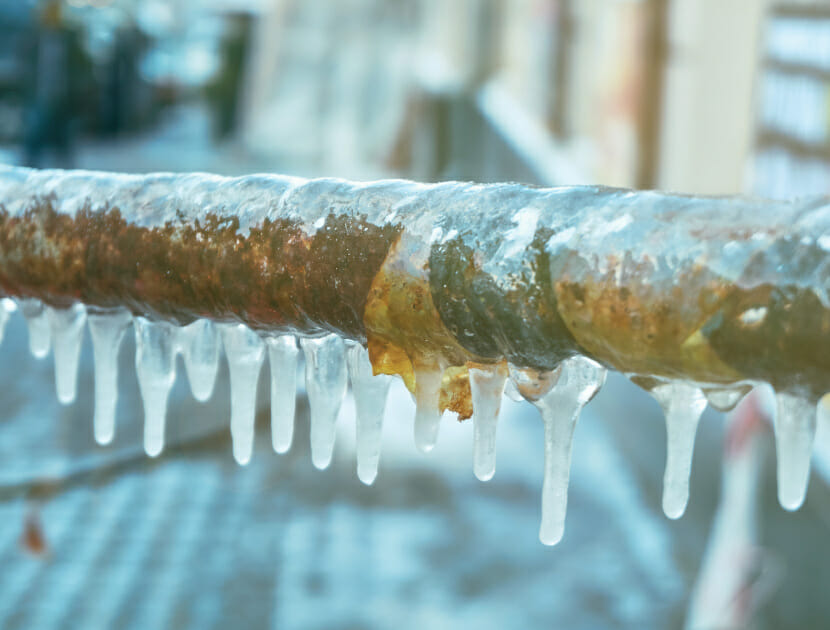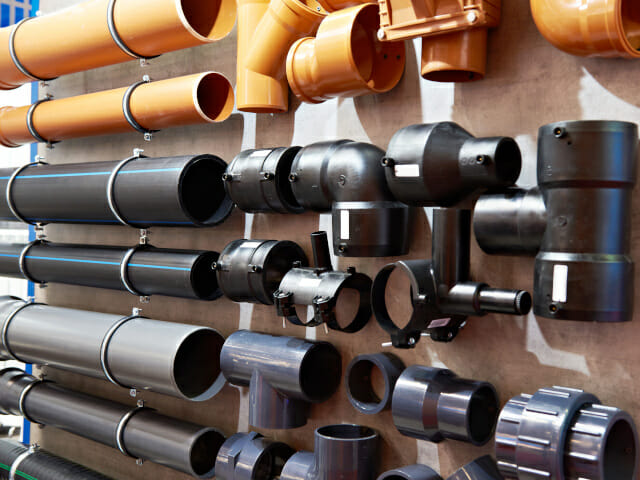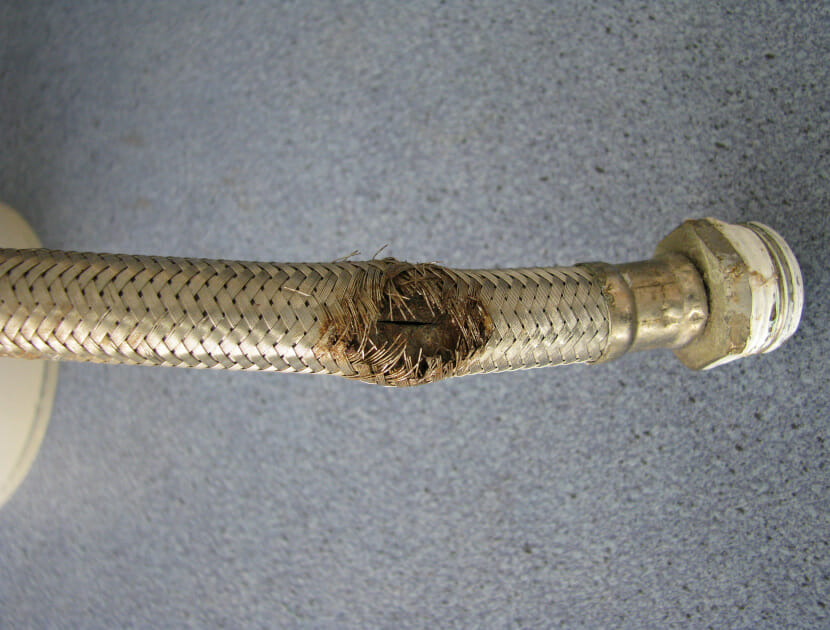Water
Water chemistry is crucial when considering the compatibility of components with it and the effects on health. This could be ocean going structures or simply components in domestic plumbing systems. Water chemistry refers to the characteristics of water, specifically physical, chemical and biological.
Physical contaminants normally refers to particulate or sediment within the water. This could include sand, plumber’s debris (such as PTFE tape, paste, chemical flux etc), corrosion products, builders’ rubble and even items introduced to plumbing systems by residents.
Considering the chemical characteristics of water and how it came to have those qualities is a wide reaching topic, but ultimately comes down to the elements and chemicals found within the water. These can be introduced from processing (at a water treatment plant), can be added to the water from leachate (water leaching into the water supply system from the soil; this could include pesticides, heavy metals and chlorine) and can also simply be from the bedrock (if the water supply is from a local well source). All of these factors can affect the life span of plumbing systems, not to mention the health of those who use it.
Biological contaminants can be critical when considering health to the living environment and also the health of the plumbing system. Whilst it is known that certain bacteria can be deleterious to human health (such as Legionnaires, E-coli and Pseudomonas) some bacteria can also cause corrosion to metallic plumbing fittings, known as Microbially Induced Corrosion (MIC). MIC can cause systemwide problems, particularly to new installations and can lead to pin holing. There are numerous ways to avoid having problems related to MIC, such as good commissioning and installation practices.
WHY APPOINT A FORENSIC INVESTIGATOR?
We have the technical knowledge and experience to tell you why an incident or issue involving water has occurred, not just what caused it.
- We have an in-depth knowledge of the regulations, guidance and best practices relating to water.
- We review working practices and installations to identify areas at high risk of a fault.
- We offer guidance and/or help you define and develop good working procedures and practices to reduce the risk of incidents occurring.
- We provide you with the answers you need to determine why an incident occurred and so assist in repudiation/cover decisions and fraud identification.
- Our experts are knowledgeable in a wide range of areas and can investigate all aspects of issues or incidents relating to water, meaning that you only need to instruct one expert, rather than several.
- We have laboratories and equipment designed specifically to investigate water incidents, with powerful, state-of-the-art stereomicroscopes.
- We will help you to determine if an incident could have been avoided.
- We support subrogation/recovery efforts.
- We help you to make decisions regarding where legal responsibilities/liabilities lie.
- We help you to defend wrongful claims.
- We produce reports suitable for Court and litigation.
- We provide consultancy advice to prevent similar events happening again in the future.
- If removing a risk entirely is unavoidable, we advise on steps to take to mitigate the risk and reduce the potential damage resulting from an incident.
- We advise on servicing, maintenance and repair regimes.
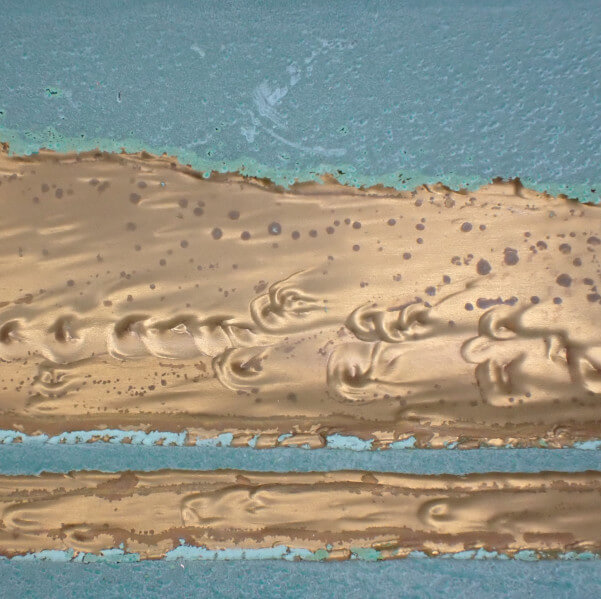
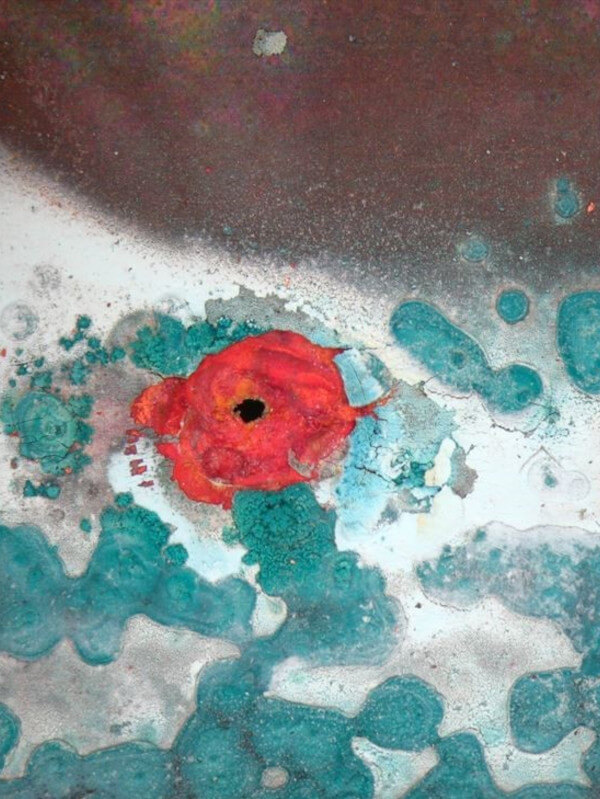

Examples of Typical cases
- Separated joints
- Faulty or broken fittings and parts.
- Material failures.
- Frost damage and frozen pipes.
- Poor system design or system installation leading to equipment failure.
- Pressure problems, such as too high or too low pressure or ‘water hammer’ issues.
- Corrosion – caused by poor installation, poor servicing, or both.
- Sewage or foul water drainage problems.
- Fraudulent or deliberately staged water leaks.
- Determining if water damage is caused by a leaking water installation such as pipework or building defects, for example, poor damp proofing in a basement.
Our services are flexible and can be tailored to your needs, depending on the scale and urgency of the investigation. Our services range from a free consultation through to a full investigation including a court-compliant report for the support of legal action.
If you would like to discuss how we can assist you please fill out our enquiry form or call us for a free consultation.
HOW DOES HAWKINS INVESTIGATE?
1
Consultation
We like to speak to our clients before conducting any work so that we can understand and plan how we can add the most value to any case. We will discuss your requirements, determine what information is already available and who the best people are to contact to fully understand the background of the case. We are also happy to provide you with a cost estimate and time scale to conduct a forensic investigation.
2
Inspection
If required and with your agreement, we will arrange to visit the scene to inspect the damage. Wherever possible, we will retain faulty parts for examination in our laboratory, where we use a range of equipment, tools, and tests to determine the cause of the failure. This could include microscope examinations, recreating an installation in a controlled environment, or testing exemplar components or materials.
3
Conclusion
Once our examination is complete, we will discuss our findings with you and prepare a report containing a detailed account of our investigation, conclusions, and where appropriate, further work or advice.
Case Studies
Dezincification of brass
Hawkins has carried out numerous studies of water supplies across the UK and assessed how water plays a factor in the corrosion of plumbing fittings. many of these cases are where dezincification is seen in brass plumbing components.
We have also examined many cases of poor installation and commissioning and its affects on pipework, particularly copper pipe which is susceptible to Microbially Induced Corrosion (MIC), in the early stages of the pipe’s life cycle. Corrosion by MIC can be catastrophic and systemwide and can require the replacement of all pipework to resolve the issue.

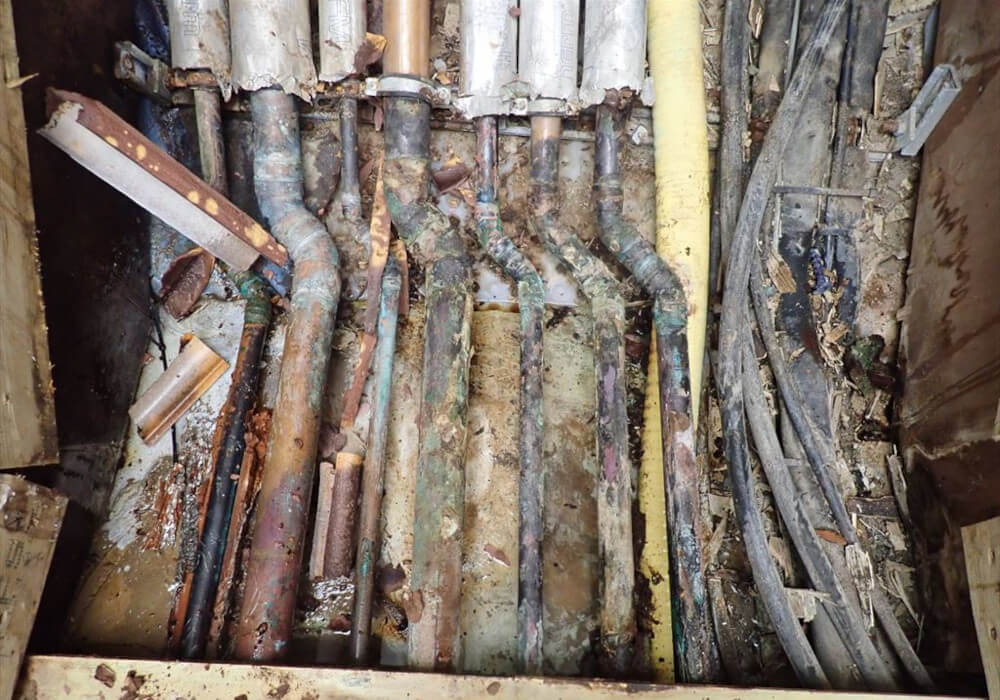
SPEAK TO ONE OF OUR EXPERTS
Testimonial
“Thank you for your superb effort in this case.”
Rhys Phillips
“Many thanks for turning out today at such short notice and providing the benefit of your expertise and knowledge. It was evident the Client was extremely relieved that this matter was being investigated expeditiously.”
Chaz Winterton
“I just wanted to say thank you for all your help and the information you found was of real insight. Thank you again for all your help.”
Stewart Hargreaves
“I just wanted to say thank you for all of your hard work preparing the Hawkins report. Please pass on my thanks to the rest of the team. We really appreciate the hours you have all put in and I know the client is pleased with your work.”
Philippa Jones
Related areas of expertise
Escapes of Water, Oil & Gas
The frequency of escape of water, oil and gas cases are increasing, along with the average cost of reinstating the resulting damage. With pipework routed through the fabric of our homes, businesses and infrastructure, small leaks can quickly lead to bigger problems.
Chemistry
Chemistry is an integral part of modern life, both in the commercial and domestic world.
Metallurgy
Losses involving metallurgical failures occur in a wide range of industrial and domestic environments and can lead to high value claims or even loss of life.
Contamination & Pollution
Fires, explosions, floods, water and chemical leaks, building collapses and other calamities can give rise to issues of contamination. It is not uncommon for machinery, building structures, stock etc. to become contaminated outside of the obvious areas where items are burnt, submerged, crushed or otherwise directly damaged during the incident.



